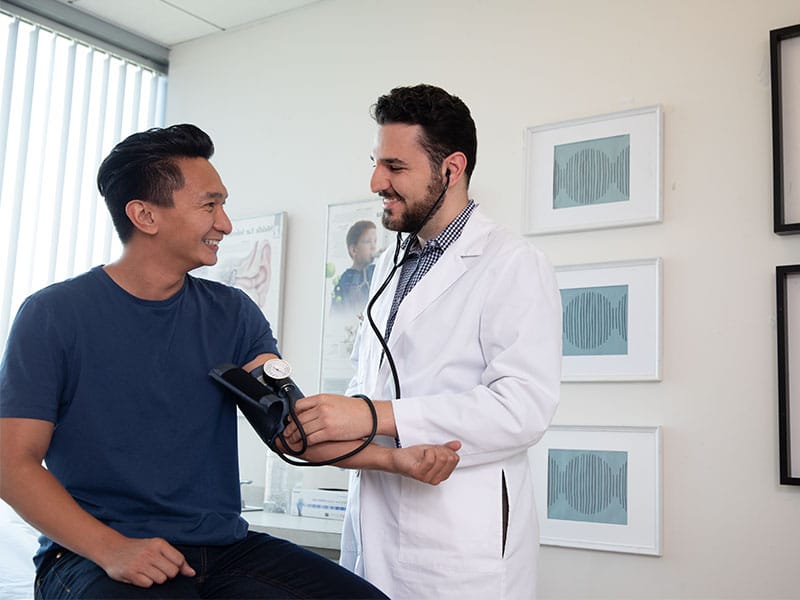How to Become a Family Nurse Practitioner in California


Family nurse practitioners (FNPs) treat patients across the entire lifespan and often deliver comprehensive primary care services in place of a physician. With such a large and impactful role in supporting patients’ foundational healthcare needs, it’s no wonder so many nurses choose this path.
If you’re interested in becoming an FNP in California, you may have an exciting career ahead of you — you just need to learn the steps for arriving at your destination, especially since California’s licensing requirements differ in comparison to many other states. This career guide will provide you with the steps for becoming an FNP in California.
Become an RN and Gain Clinical Experience
Family nurse practitioner programs typically require you to be a licensed registered nurse (RN) with a certain number of years of direct patient care experience when you apply. This means you will need to have a Bachelor of Science of Nursing (BSN) from an accredited program and an unencumbered RN license in the state where you are pursuing your higher education to become a family nurse practitioner.
Learn the steps for becoming a registered nurse in California.
Complete an Accredited Family Nurse Practitioner Program

Once you have established yourself as an RN with the right level of education and on-the-job experience, you can apply to a family nurse practitioner graduate program, such as a Master of Science in Nursing (MSN) with an FNP specialization or post-master’s certificate program if you’re an RN who already earned a master’s degree in another area. Some nurses choose to pursue the highest level of nursing education with a Doctor of Nursing Practice (DNP).
MSN programs typically take about two years to finish, DNPs typically take three to four years to finish, and post-master’s certificate programs are usually shorter, taking one to two years to complete. When counting your undergraduate education, it can take a total of six to eight years to complete your education to become a family nurse practitioner.
If you are looking for a flexible FNP program that can easily be adjusted to your schedule, you may want to consider enrolling in an online program. This can be especially helpful for aligning your study time with your schedule as a working nurse. Whatever program you choose should be accredited in alignment with certification and licensure standards.
Pass a National FNP Certification Exam
In order to become licensed as a family nurse practitioner, you will need to pass a national certification exam to earn an FNP certification from one of the following organizations:
- American Nurses Credentialing Center (ANCC)
- American Academy of Nurse Practitioners Certification Board (AANPCB)
To be eligible for a national exam, you must be a licensed nurse and have a role- or population-specific master’s degree, post-graduate certificate, or DNP from an institution with a program that is accredited by a recognized nursing accrediting organization. You must also have completed at least 500 faculty-supervised, direct patient care clinical hours. To learn more about the requirements for taking your national exam, review the ANCC website or the AANP handbook.

Earn Your FNP License in California
Because California is not part of the Nurse Licensure Compact (NLC), you will need to obtain a California license if you want to work as an FNP in this state. Once you pass your exam, you will need to apply for an FNP license with the California Board of Registered Nursing (BRN).
The standard steps for FNP licensure in California include the following:
- Fill out the FNP licensure application online
- Get your educational institution to submit verification of your completion of your FNP program
- Show proof that you passed your national exam (if you graduated from a program that is not approved by the California Board)
You can also choose the “equivalency” path to licensure, in which case you will also need verification that you completed your program, curriculum and course desertions, and clinical competency verification by a nurse practitioner and/or physician.
You can submit your application online through the BreEZe website.
Work as an FNP and Keep Up with Your Renewals
Once you’re formally licensed, you can start working as a family nurse practitioner in California. Remember to network and make the most of any professional contacts you have gained through your program and past nursing career. If you need help finding the right FNP role, you may be able to work with your academic institution, if they offer career support services.
And make sure to renew your national certifications and state license as needed. The ANCC and AANPCB certifications must be renewed every five years, and FNP licensure in California must be renewed every two years, though your first renewal date may be less than two years from your initial certification date due to how the renewal dates are selected.
Learn more about how to renew your nursing licenses in California.

Get Started on Your FNP Education

If you’re ready to move forward on your path to becoming a family nurse practitioner in California, it’s time to enroll in a program. Whether you’re looking for an FNP program or a BSN to get you started with your preliminary education, West Coast University can help.
WCU offers FNP specializations for the following online programs:
WCU also offers a BSN program for those who want to prepare for their FNP program, as well as a DNP program for those who want to further their education after becoming licensed FNPs.
Explore WCU’s programs and apply today to get closer to your professional goals!
Request Info
- Flexible online and campus programs
- 65,000 alumni across the globe
- Experienced faculty and staff